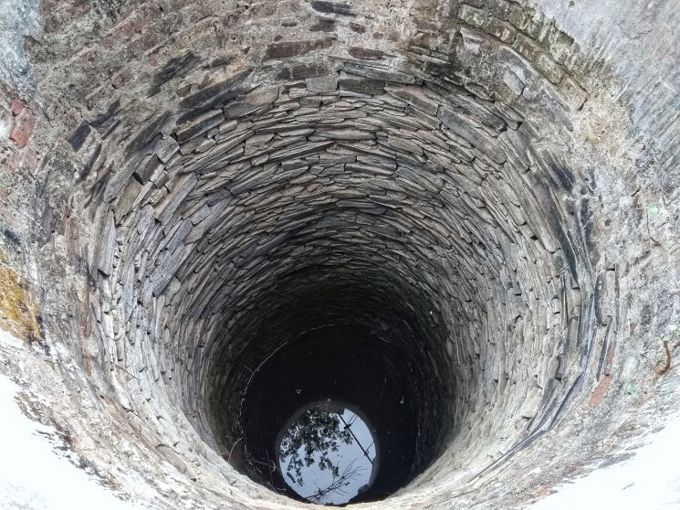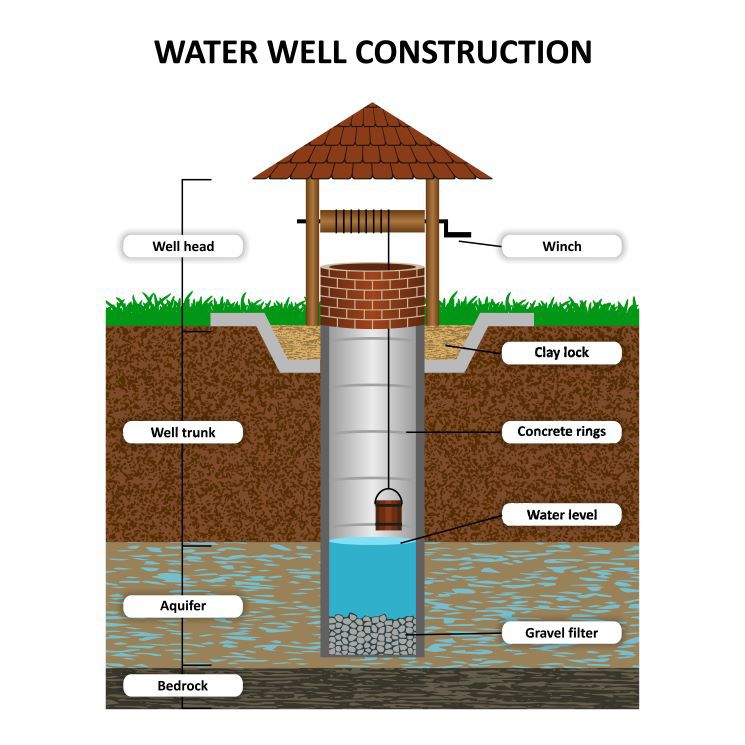
Private Well Regulations in Virginia
Virginians install private wells to access groundwater for drinking, domestic use, irrigation, industrial use, and other purposes. Learn more about how Virginia law applies to the installation and use of these private wells.
Federal, State and Local Virginia Water Laws Applicable to Private Wells
Environmental law usually requires us to consider the interplay between federal and state law. Not true, though, when considering drinking water delivered by a private well. The 1974 federal law called the Safe Drinking Water Act (SDWA) was codified at 42 U.S.C. § 300f et seq. The SDWA regulations are codified at 40 CFR part 141. However, the SDWA does not cover private wells that serve fewer than 25 individuals. Although the EPA does not have the power to regulate these wells, it has nevertheless placed on its website a collection of very helpful information for the owner of a private well.
Virginia takes a different approach towards private well regulation. The law of our Commonwealth does impose some requirements on the owner of a private well. The Virginia Department of Health website is one source for helpful information regarding this issue. Virginia code §32.1-176.4 directs the Virginia Department of Health to “adopt regulations pertaining to the location and construction of private wells in the Commonwealth.” The statute permits seven specifically named localities to enact ordinances that establish standards for location and construction of private wells located within their respective borders. The Virginia Department of Health codified its Virginia Private Well Regulations at 12 VAC 5-630-10 to 480.

Shutterstock: Aunt Spray
Fecal Coliform in Your Private Well Water
A client asked us whether the water coming from a well that supplied water for household uses would be unsuitable as a source to supply water for human consumption if the water tested positive for fecal coliform. If contaminated with fecal coliform, the water is not recommended for human consumption. There may be treatment options available to restore the potability of your private well water.
The Virginia Private Well Regulations classifies private wells into two broad categories (12 VAC 5-630-360). A Class III private well is used as a source of drinking water. A Class IV private well is one constructed for any other purpose. Not surprisingly, the regulation imposes a water quality standard on the Class III well (12 VAC 5-630-360). The standard applicable to the Class III well requires installation of a sample tap at a location that ensures samples are collected “directly from the source”. Samples must be delivered to a lab holding an appropriate certification. If an initial test reveals the presence of “coliform organisms”, then a follow battery of tests are required to determine whether the supply of water is eligible for “continuous disinfection” treatment.
If eligible for disinfection treatment, then the treatment system providing continuous disinfection may be installed. If the raw water is contaminated to an extent that renders it ineligible for such treatment, and provided further that there is no other source of drinking water at the location, then some type of “adequate method of water treatment shall be applied and demonstrated to be effective”, in mandatory consultation with the district or local health department.

Shutterstock: Ellen Bronstayn
Other Virginia Water Well Regulations Applicable to Class III and Class IV Wells
Virginia well drilling regulations require adherence to several safety factors when installing a private well. First, the person installing a private well must obtain a construction permit (12 VAC 5-630-230 & 240). Eligibility for the construction permit depends on compliance with the well location requirements (12 VAC 5-630-380), the site protection requirements (12 VAC 5-630-390), the materials requirements (12 VAC 5-630-400) and the construction requirements (12 VAC 5-630-410).
The person holding the construction permit must notify the district or local health department when private well construction is complete (12 VAC 5-630-310). The well may not be placed in operation until the district or local health department has inspected the well, and determined it to be satisfactory, as evidenced by the health department’s issuance of an “inspection statement” (12 VAC 5-630-320 & 330).
The owner of a private well must likewise ensure that the quantity of Virginia groundwater drawn from the well fits within the limits imposed by The Groundwater Management Act of 1992, codified at Virginia Code §62.1-254 to 270. The DEQ regulations implementing the act are found at 9 VAC 25-600-10 to 20 and 9 VAC 25-610-10 to 390. Read “Virginia Groundwater and Water Use Restrictions” if you want to learn more about Virginia Groundwater Law and Water Use Restrictions.
Conclusion
Contact Jim Lang if you would like to see him publish more information on the regulation of private wells in the state of Virginia. Of course, you can always contact Jim for his advice and assistance in connection with needs specific to your particular situation.
